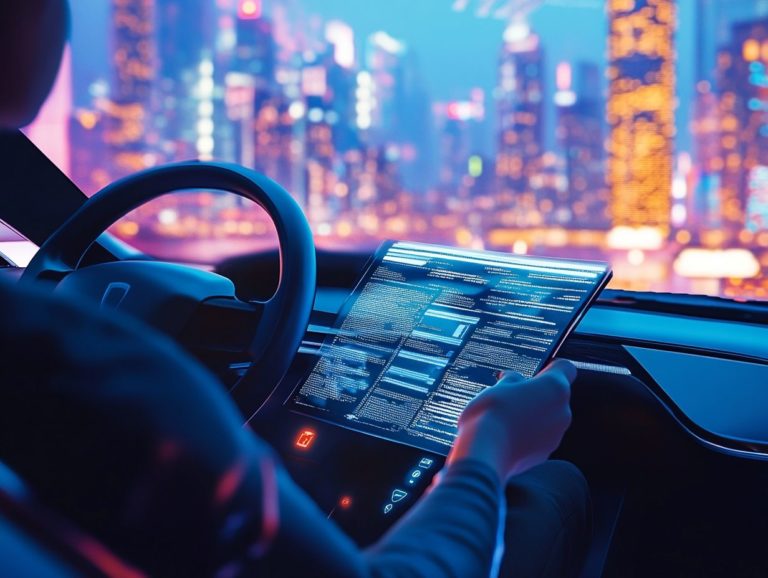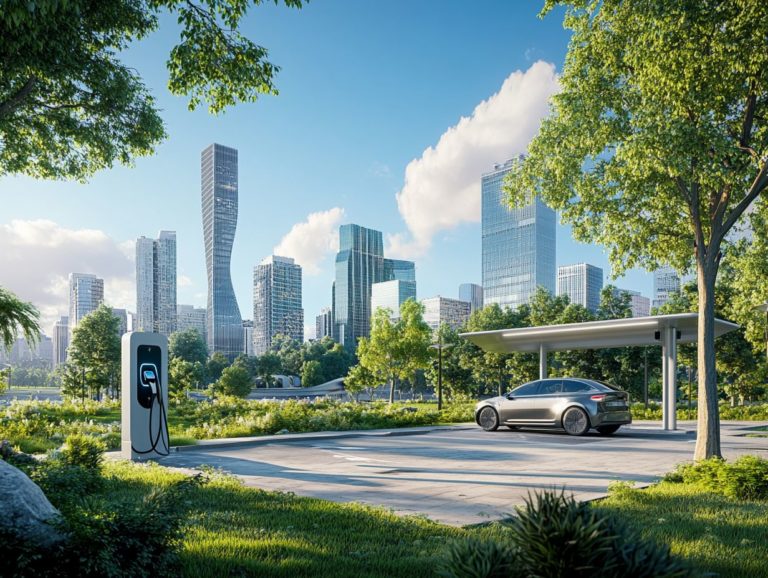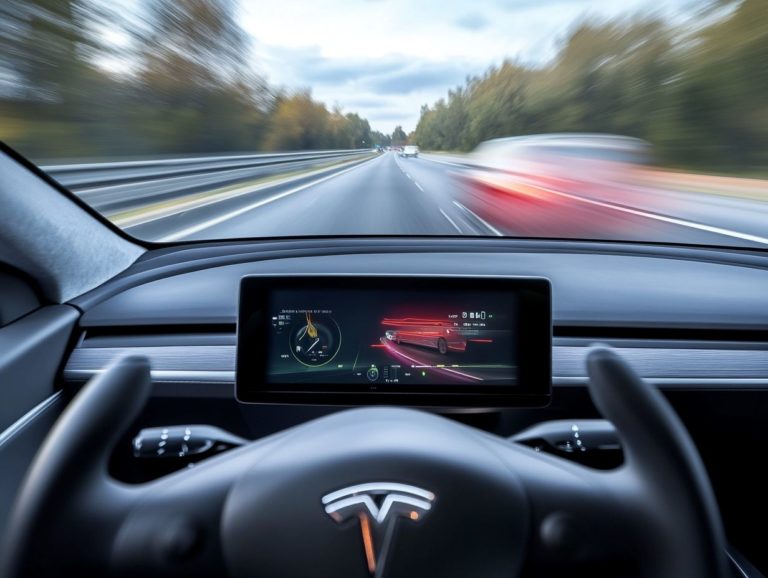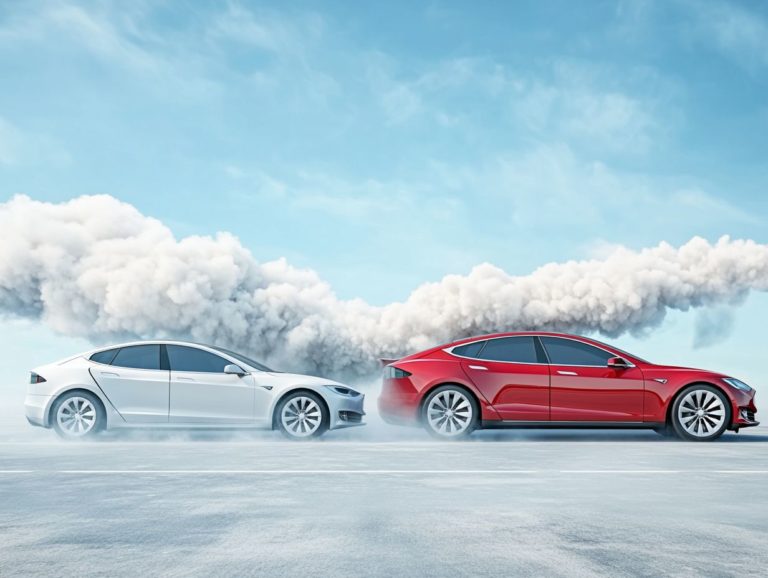What Should I Do If My EV Battery Is Not Charging?
Electric vehicles (EVs) are changing how we travel! They come with a set of unique challenges, especially around battery charging.
Understanding how EV batteries charge is crucial. This guide explores common charging issues and offers practical troubleshooting steps.
It also shares strategies for maintaining your battery for optimal performance. Whether you re a new or experienced EV owner, you’ll find valuable insights to keep your vehicle charged.
Contents
- Key Takeaways:
- Understanding EV Battery Charging
- Common Reasons Why EV Batteries Don’t Charge
- Troubleshooting Steps
- Maintaining Your EV Battery for Optimal Charging
- Frequently Asked Questions
- What should I do if my EV battery is not charging?
- Why is my EV battery not charging?
- What should I do if my EV battery is not charging to its full capacity?
- Can extreme temperatures affect my EV battery’s charging?
- What should I do if I’m on a road trip and my EV battery is not charging?
- Is it safe to try to charge my EV battery on my own?
Key Takeaways:
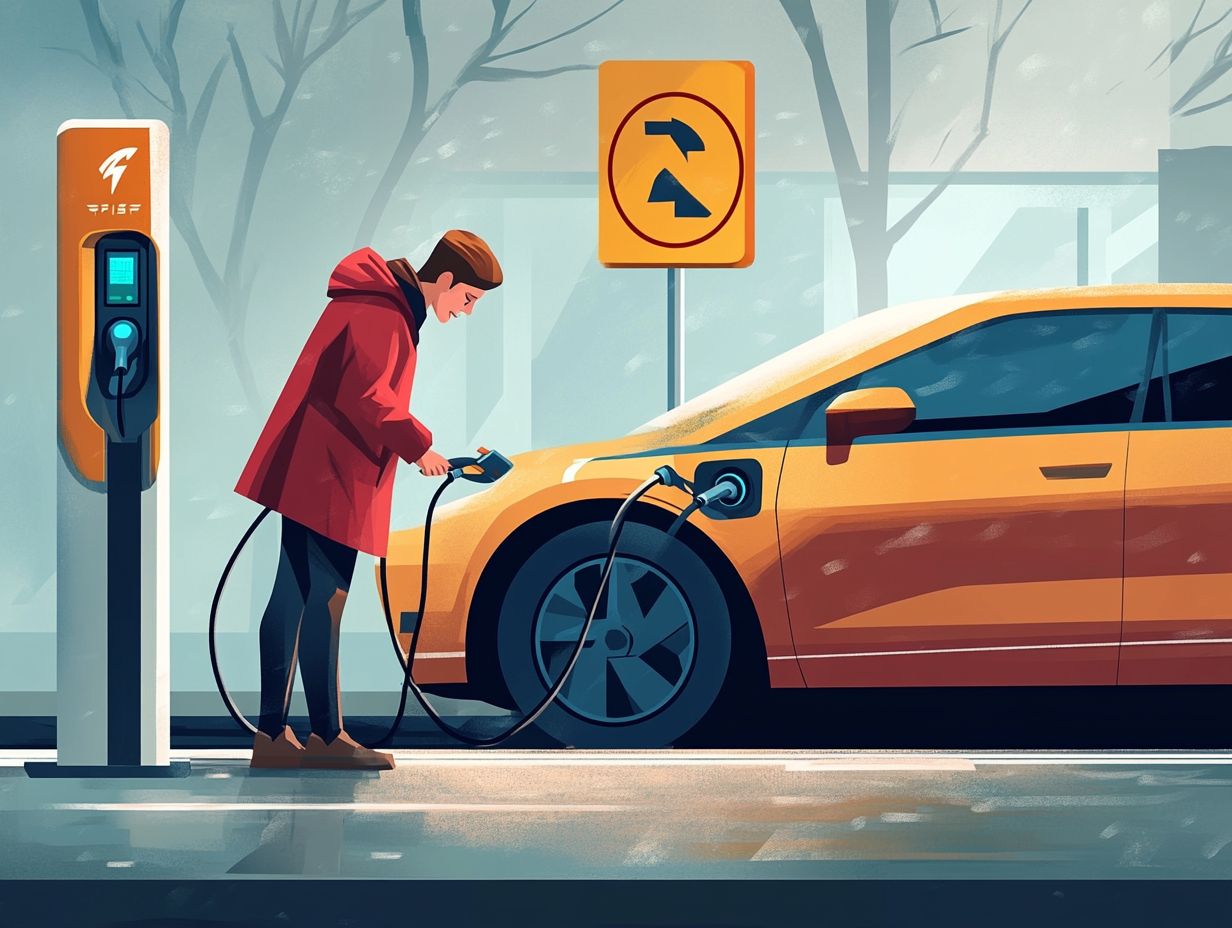
- Check for loose connections or debris if your battery isn’t charging.
- Be aware that extreme temperatures can affect charging.
- Regular maintenance and proper charging practices extend battery life.
Understanding EV Battery Charging
As an EV owner, understanding battery charging is essential. It impacts your driving experience and battery longevity.
With various charging options available from public chargers to home solutions it s important to familiarize yourself with the nuances of the charging process.
The charging network is expanding rapidly. Utilizing charging apps can help you find convenient points and track your sessions.
Knowing about different chargers like slow, fast, and rapid chargers can enhance your overall EV experience.
How EV Batteries Charge
Most EV batteries use lithium-ion technology, which requires the right charging cable and station.
When you connect to a charging station, energy flows into the battery. This triggers a chemical reaction that stores energy for later use.
It s essential that the charging cable is compatible with your vehicle’s charging port and the station’s output for a seamless connection.
You ll encounter various charging stations, including Level 1, Level 2, and DC fast chargers. Each offers different speeds and connection types, so understanding these differences is crucial.
Having the right cable and understanding the charging network is essential for maximizing your EV’s performance.
Factors Affecting Charging
Several factors influence your EV’s charging efficiency. These include battery health, charging options, and environmental conditions.
Understanding your battery’s health is vital, as it directly impacts charging speed. A battery in excellent condition allows for faster charging with high-powered chargers.
However, if your battery’s health has declined, you may experience slower charging regardless of the charger used.
External factors, like ambient temperature, can also affect efficiency. Batteries often lose effectiveness in extreme heat or cold, impacting both the charging rate and lifespan.
Therefore, it s essential to consider all these variables to optimize your charging experience.
Common Reasons Why EV Batteries Don’t Charge
Even with advanced technology, several issues can prevent your EV battery from charging. These include malfunctioning equipment and damaged cables.
Malfunctioning Charging Equipment
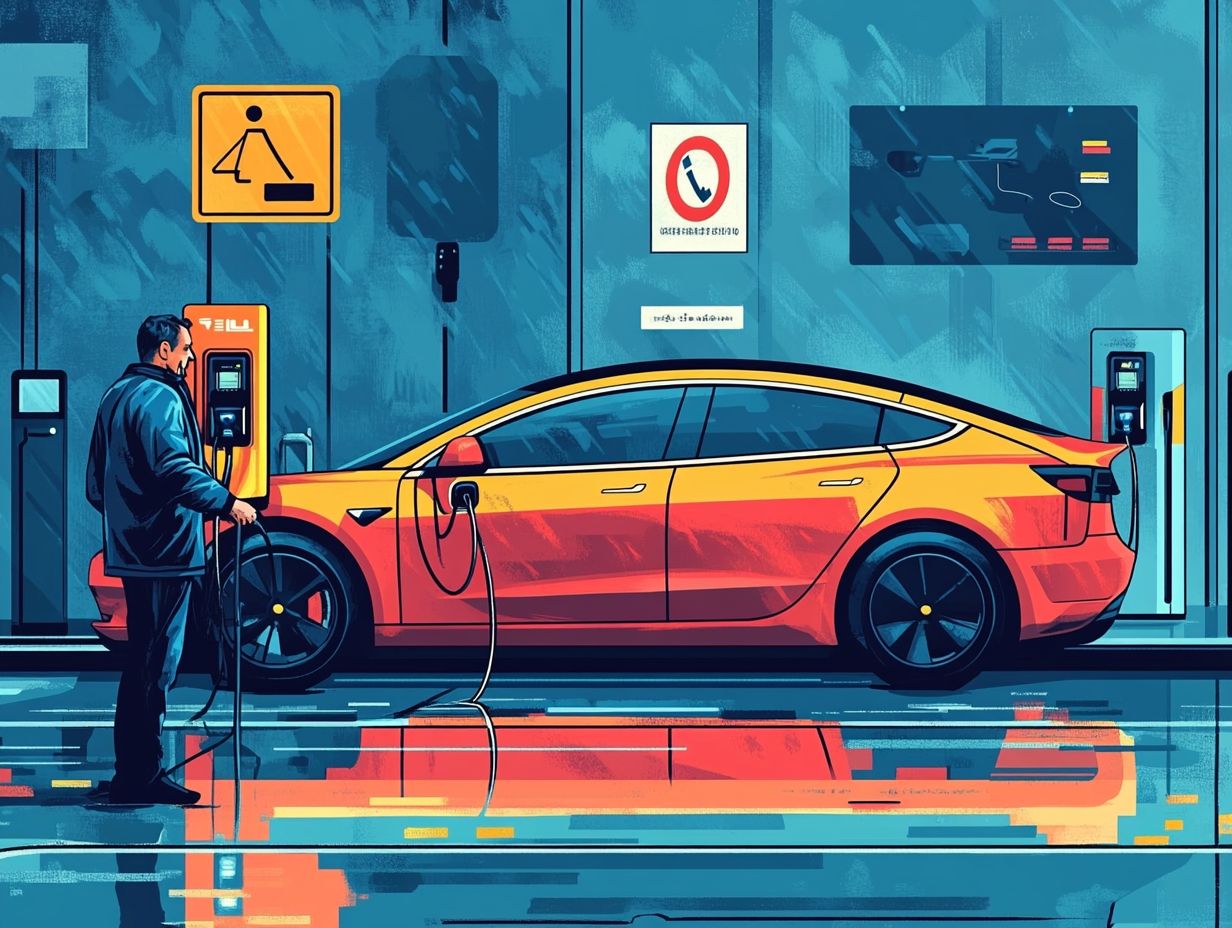
Malfunctioning charging equipment can create significant hurdles for EV owners, often resulting in interrupted charging sessions at public chargers or home charging stations.
These disruptions not only inconvenience you. They can also lead to unnecessarily long wait times, especially at busy charging points.
Compatibility issues often stem from outdated technology or faulty connectors, leading to frustration and confusion. That s why it s essential to prioritize regular maintenance checks on your charging equipment.
By taking this proactive approach, you can identify potential problems early on. This ensures that your charging experience remains smooth and reliable.
This not only enhances the longevity of your devices but also maximizes overall efficiency, contributing to a more satisfying ownership experience.
Battery Health and Capacity
The health and capacity of a lithium-ion battery, the common type used in electric vehicles that stores energy to power your car, are essential for the effectiveness of the charging process and the overall performance of your electric car.
When your battery is in prime condition, it efficiently converts energy during charging. This leads to quicker recharges and extended driving ranges.
However, factors like extreme temperatures, overcharging, and neglecting regular maintenance can gradually degrade the battery s health. To protect the longevity of this vital component, it’s important to follow good habits for charging.
Using a reliable charger, steering clear of high voltage levels, and ensuring the battery remains neither overly full nor excessively empty can significantly boost charging efficiency.
Maintaining a moderate temperature can also optimize performance. Regularly updating the software further extends the lifespan of your battery.
Environmental Factors
Environmental factors like temperature and humidity significantly impact the charging process and overall battery health of electric vehicles.
For example, extreme heat can speed up battery degradation. In contrast, chilly temperatures may drastically slow down charging times.
These conditions can lead to decreased efficiency, ultimately affecting your vehicle’s performance. Consider selecting charging stations that offer shelter from inclement weather or adjust your charging schedule according to the weather forecast.
Utilizing smart charging solutions like software that optimizes energy consumption based on local climate data can also help extend battery life. Act now to maximize your EV’s performance and battery life, no matter the weather!
Troubleshooting Steps
When encountering issues with EV charging, it s crucial to dive into troubleshooting steps right away to solve your charging issues fast! Begin with a few fundamental checks of the charging process to lay the groundwork for a thorough resolution.
Basic Checks and Solutions
Conducting basic checks is essential when your EV refuses to charge. Start by inspecting the charging cable for any damage and ensuring it s compatible with the charging point.
- Examine the vehicle s charging port for debris or corrosion that could hinder connectivity.
- Verify that the charging station is operational; consider testing it with another vehicle if possible.
- Check the vehicle s battery level as low power levels can sometimes lead to charging issues.
- Ensure you have the correct adapter for your charging needs.
- Take note of any weather conditions that might be affecting the charging process.
Addressing these potential issues can save you time and prevent unnecessary frustration before seeking professional assistance.
When to Seek Professional Help
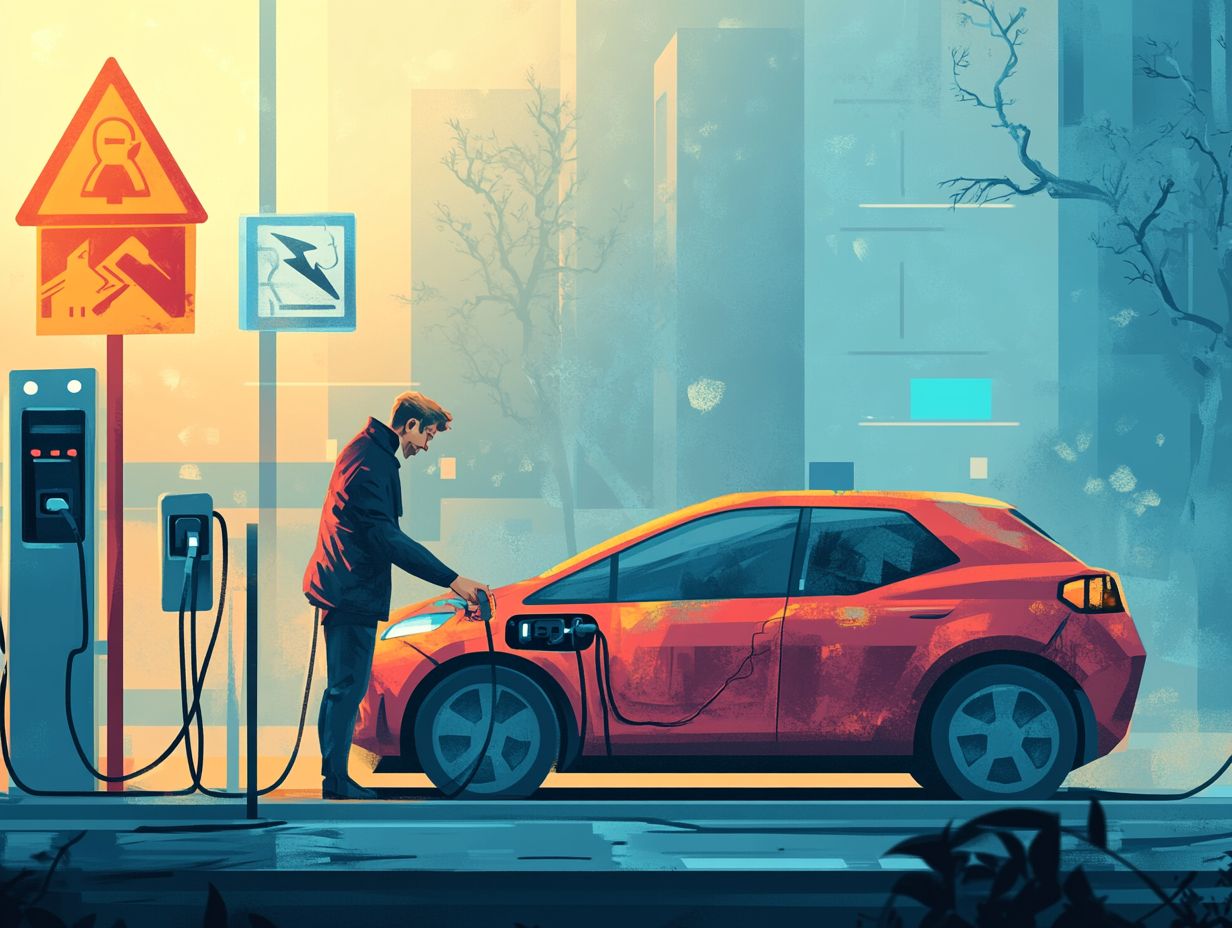
When basic troubleshooting steps don t do the trick, it s wise to consider reaching out for professional help, especially if you re facing complex issues with charging equipment or battery health.
Ignoring persistent symptoms can lead to serious complications. If your device fails to charge after several attempts or if you notice scorching marks on cables, seek help immediately.
Don t ignore any unusual behaviors, like excessive heat during charging or spotty connectivity. These signs often point to an underlying issue that needs expert attention.
By recognizing these warning signs early, you can prevent further damage and potentially save yourself from costly repairs later. Don t wait! Consult a skilled technician to diagnose the issue swiftly and get back on the road!
Maintaining Your EV Battery for Optimal Charging
To ensure optimal charging performance and longevity of your EV battery, you ll need to prioritize regular maintenance and adopt best practices. By doing so, you safeguard its efficiency and extend its lifespan.
Best Practices for Battery Longevity
Implementing best practices for battery longevity is essential for you as an electric vehicle owner, ensuring that your battery maintains its health and charging efficiency over time.
To maximize your battery’s lifespan, choose the right charging options. Opt for slow chargers during regular overnight sessions, saving those fast chargers for rare long trips when every minute counts.
Steering clear of extreme charging conditions like excessively hot or cold environments can significantly enhance your battery’s overall performance.
Keep your battery level between 20% and 80% for best results. This simple practice can help prevent unnecessary wear and tear, preserving your battery s capabilities for the long haul.
Importance of Regular Maintenance
Regular maintenance is essential for preserving battery health and ensuring a seamless charging experience in electric vehicles, helping you avoid potential compatibility issues.
By routinely inspecting connections and cleaning terminals to prevent corrosion, you can significantly boost battery efficiency.
It’s wise to monitor battery temperature, ensuring it operates within an optimal range; extreme conditions can shorten lifespan and slow down charging speeds.
Periodically checking the state of charge and discharge cycles is beneficial too catching any irregularities early can save you money in the long run.
Keep your vehicle’s software updated to enhance communication with charging stations, ultimately leading to a better charging experience.
Frequently Asked Questions
What should I do if my EV battery is not charging?
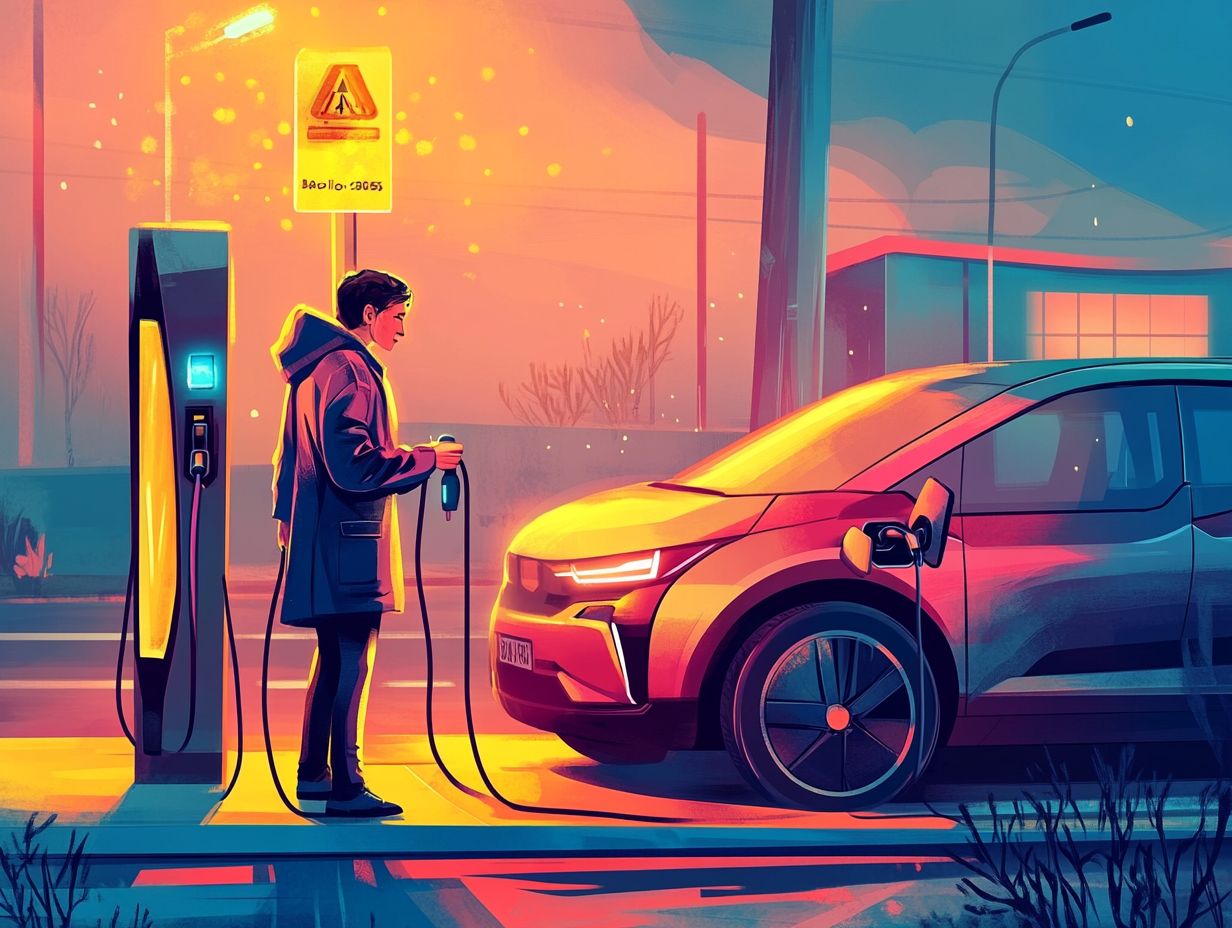
First, check to make sure that your charging cable is properly connected to both your car and the charging station. If it is, try unplugging and then plugging it back in. Check for error messages on your dashboard or charging station display. Understanding the issue is key to resolving it quickly!
Why is my EV battery not charging?
There could be several reasons why your EV battery is not charging. It could be due to a faulty charging cable, a malfunctioning charging station, or issues with your car’s battery or charging system. It’s critical to identify the reason quickly whether it’s a faulty cable or an issue with the battery.
What should I do if my EV battery is not charging to its full capacity?
If your EV battery is not charging to its full capacity, it could be a sign that the battery is reaching the end of its lifespan. You may need to have it replaced. However, ensure that your charging station and cable are functioning properly, as these can also affect the charging capacity.
Can extreme temperatures affect my EV battery’s charging?
Yes, extreme temperatures can impact your EV battery’s charging. In very cold weather, charging can take longer. In hot weather, the battery may struggle to hold a charge. For the best performance, charge your EV battery when it s nice and moderate outside!
What should I do if I’m on a road trip and my EV battery is not charging?
If your EV battery isn t charging on a road trip, look for a nearby charging station. If there isn t one, try to conserve battery power by limiting features that use a lot of power, like air conditioning. Contact roadside assistance if you need help.
Is it safe to try to charge my EV battery on my own?
It s generally safe to charge your EV battery yourself, as long as you take safety precautions. Use the right charging equipment, and if you feel unsure, consult a professional or your EV manufacturer for guidance.

